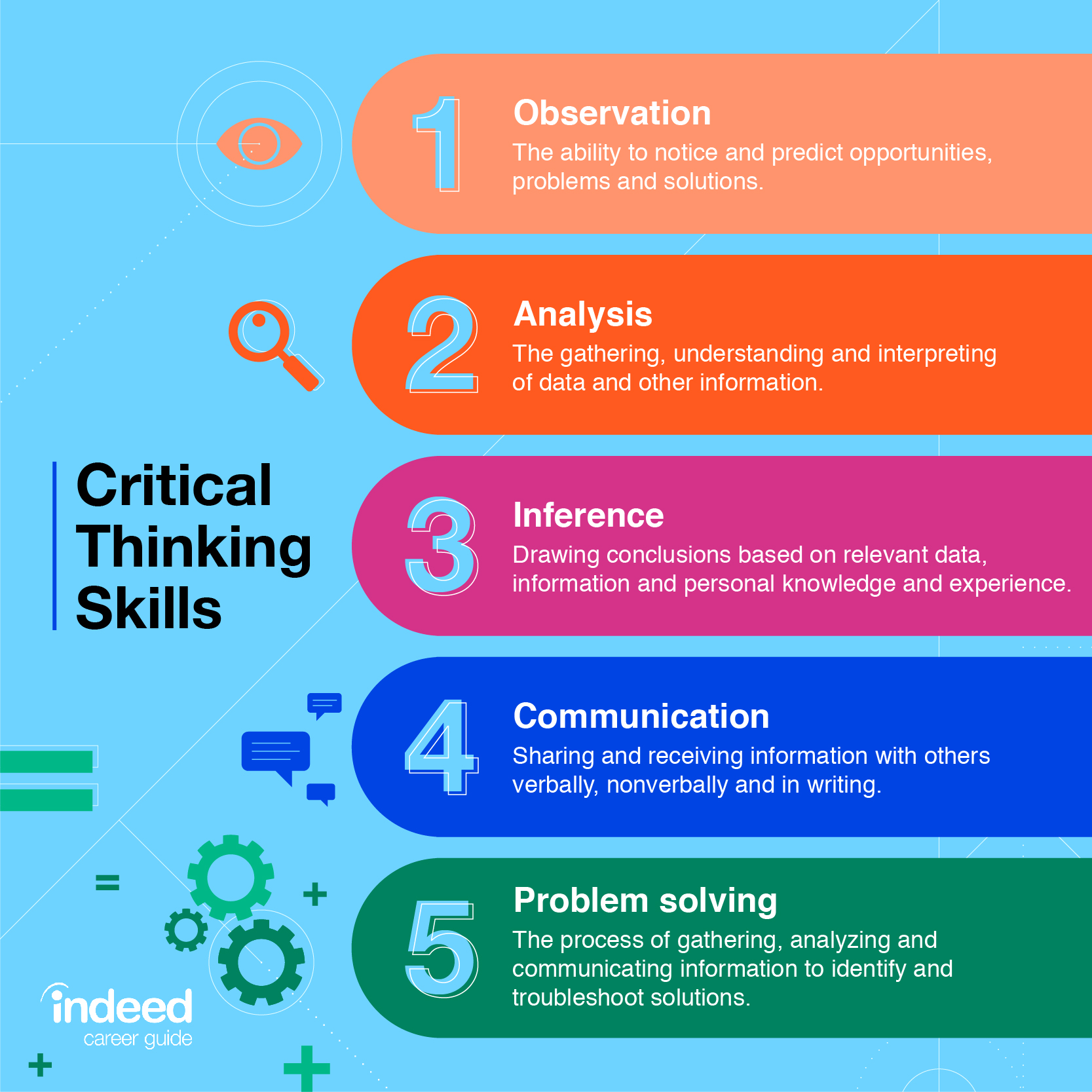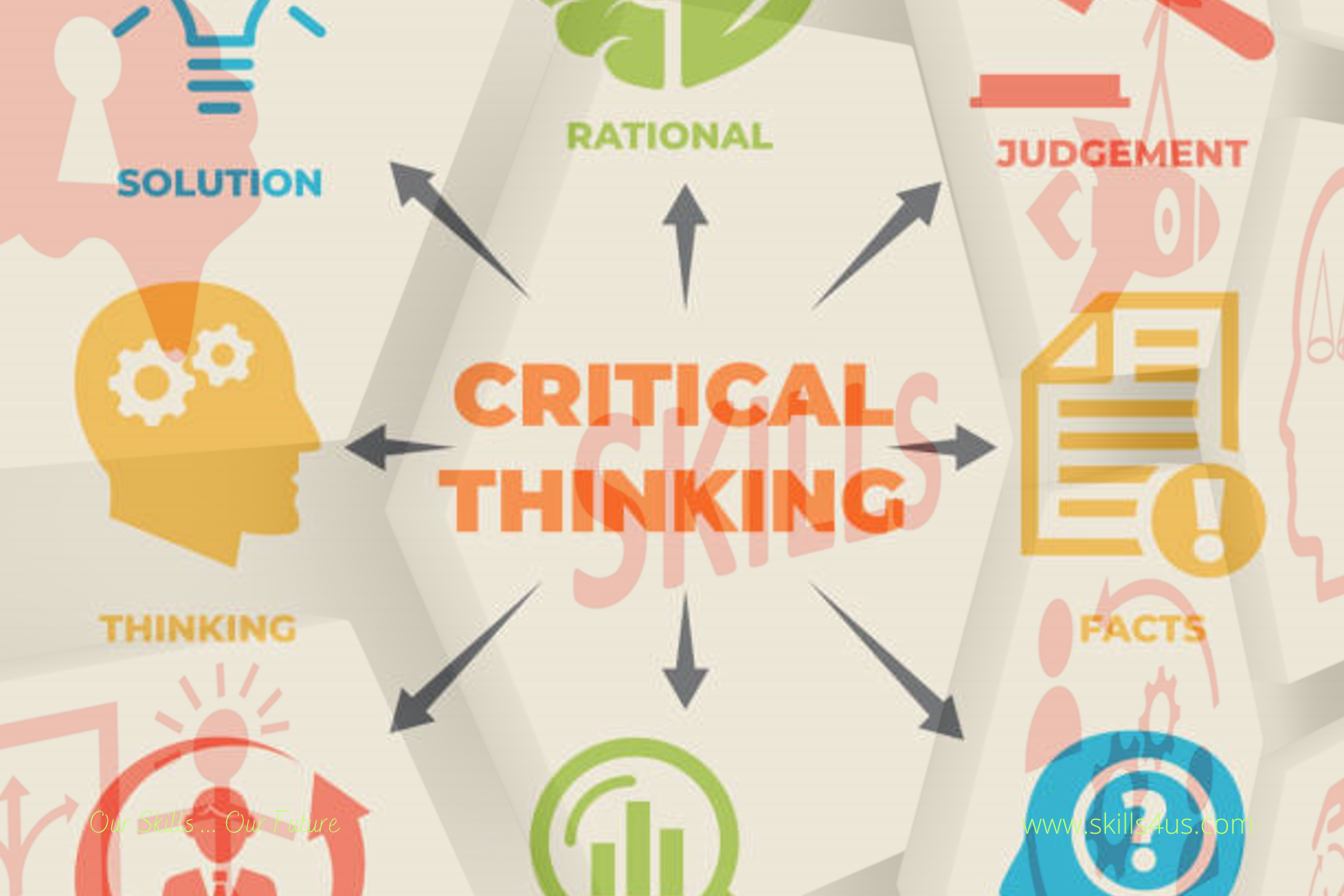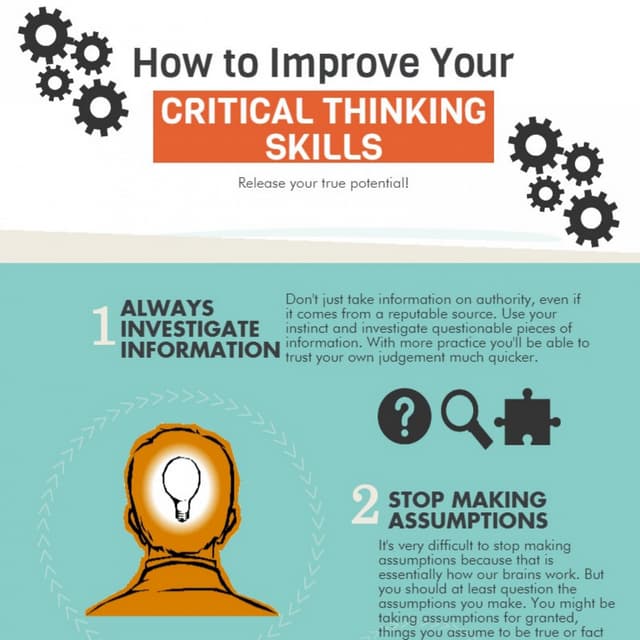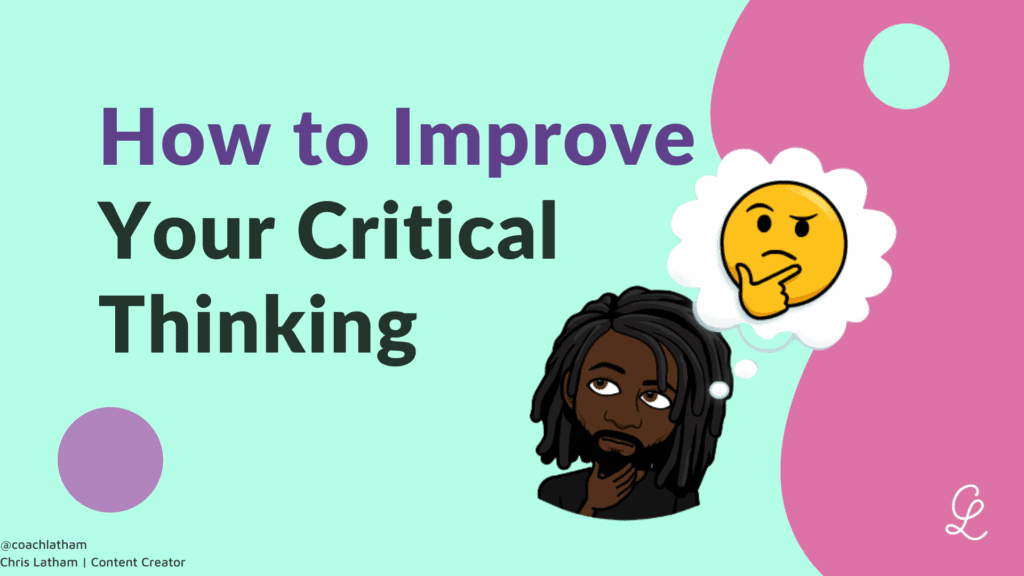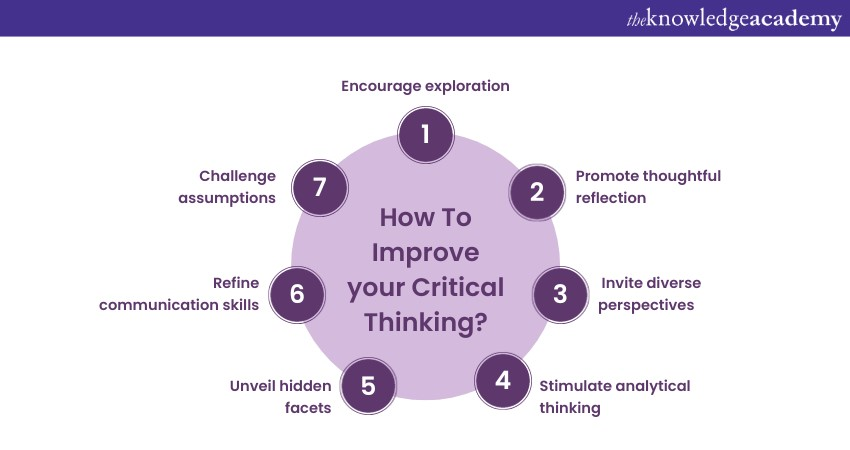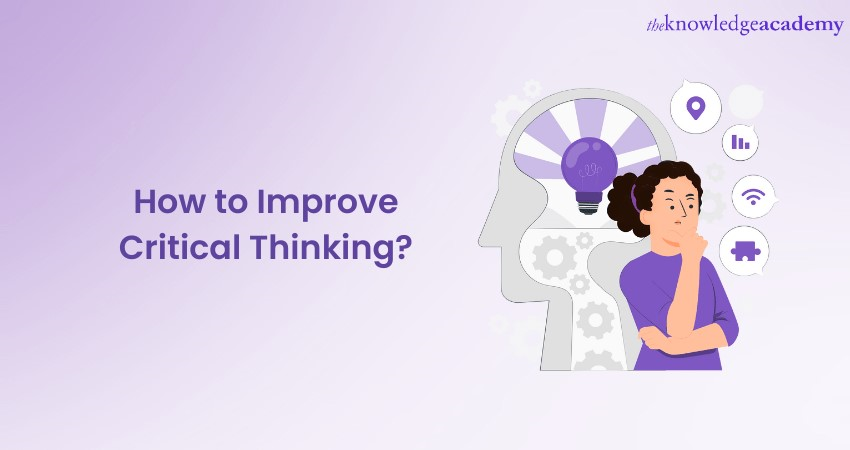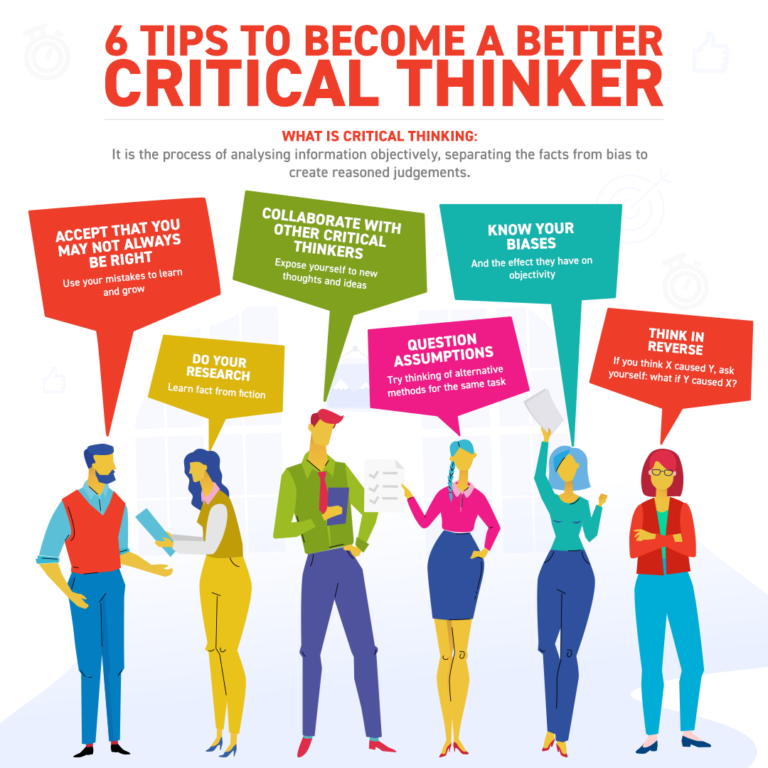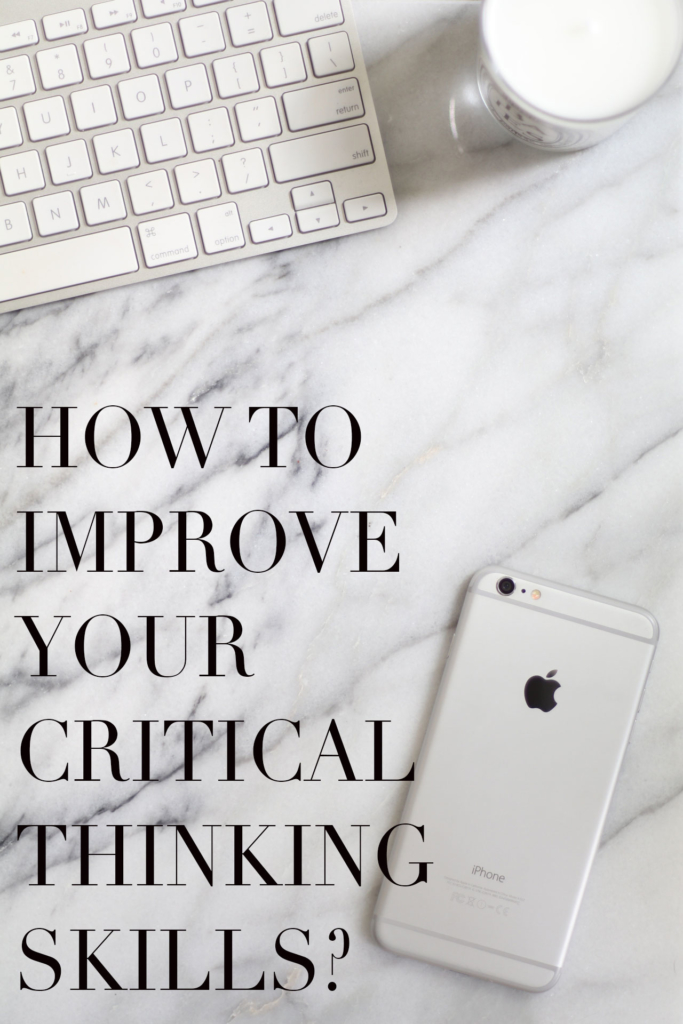How To Improve Your Critical Thinking

In an era defined by information overload and the proliferation of misinformation, the ability to think critically is no longer a mere academic exercise but a vital survival skill. From navigating complex social issues to making informed personal decisions, the capacity to analyze, evaluate, and synthesize information is paramount. But how can individuals actively hone this essential skill?
This article delves into actionable strategies for improving critical thinking, drawing on insights from cognitive science, educational psychology, and expert opinions. We will explore techniques that can be integrated into daily life to foster more rational, objective, and well-reasoned decision-making.
Understanding the Foundations of Critical Thinking
At its core, critical thinking involves the objective analysis and evaluation of an issue to form a judgment. It requires intellectual humility, a willingness to question assumptions, and a commitment to evidence-based reasoning.
Cultivating Intellectual Humility
One of the first steps in enhancing critical thinking is embracing intellectual humility. This means acknowledging the limits of your knowledge and being open to the possibility of being wrong.
It involves actively seeking out diverse perspectives and being willing to revise your beliefs in light of new evidence. As Professor Richard Paul, a leading authority on critical thinking, emphasizes, "Critical thinkers are routinely humble about what they don't know; they recognize that their knowledge is always partial."
Questioning Assumptions
Critical thinkers do not accept information at face value. They actively question assumptions, both their own and those presented by others. This involves asking probing questions such as "What evidence supports this claim?" and "What alternative explanations are possible?"
According to the Foundation for Critical Thinking, a key element is learning to identify biases and cognitive distortions that can cloud judgment.
Embracing Evidence-Based Reasoning
Critical thinking relies on evidence-based reasoning, which means basing conclusions on verifiable facts and data. This requires evaluating the credibility of sources and distinguishing between facts and opinions.
It also entails understanding basic statistical concepts and being wary of logical fallacies. Organizations like the National Science Foundation (NSF) promote STEM education, which emphasizes scientific reasoning and data analysis.
Practical Strategies for Enhancing Critical Thinking
While understanding the foundations of critical thinking is important, putting these principles into practice is crucial for real improvement. Several strategies can be incorporated into daily life to sharpen critical thinking skills.
Engaging in Active Reading
Active reading involves more than just passively reading text. It entails actively engaging with the material by highlighting key points, taking notes, and asking questions.
After reading, summarize the main arguments in your own words and consider the author's perspective and potential biases.
"The habit of active reading is one of the truest and surest roads to effective thinking," argues Mortimer Adler, author of How to Read a Book.
Participating in Constructive Debates
Engaging in respectful debates with others can be a powerful way to hone critical thinking skills. Choose topics where there are differing viewpoints and be prepared to defend your position with evidence and logical arguments.
Listen actively to the opposing viewpoint and be willing to concede points when appropriate. This type of intellectual sparring can help you identify weaknesses in your own reasoning and broaden your understanding of the issue.
Solving Puzzles and Playing Strategy Games
Activities like solving puzzles, playing strategy games, and engaging in brain teasers can stimulate critical thinking skills. These activities require analytical thinking, problem-solving, and the ability to think strategically.
Games like chess and Sudoku, for example, challenge you to anticipate consequences and make decisions based on incomplete information. Educational institutions increasingly use games as tools to develop thinking skills.
Reflecting on Your Own Thinking
Metacognition, or thinking about your own thinking, is a powerful tool for improving critical thinking. Take time to reflect on your reasoning processes, identifying any biases or cognitive distortions that may be influencing your judgment.
Keep a journal to track your thought processes and challenge your own assumptions. This self-reflective practice can help you become more aware of your own thinking habits and identify areas for improvement.
The Future of Critical Thinking
As the world becomes increasingly complex and interconnected, the demand for critical thinkers will only continue to grow. Individuals who can effectively analyze information, solve problems, and make informed decisions will be highly valued in all aspects of life.
By actively cultivating critical thinking skills, individuals can empower themselves to navigate the challenges of the 21st century and contribute meaningfully to society.
The future of critical thinking also relies on educational reforms that prioritize critical thinking skills over rote memorization. The World Economic Forum, for example, identifies critical thinking and problem-solving as essential skills for the future workforce.
Investing in critical thinking education will be crucial for preparing future generations to thrive in a rapidly changing world.
